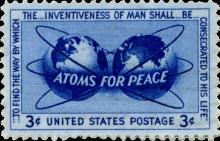Atoms, Sometimes for Peace: PhD Dissertation

In this post I wanted to provide some background on the research that led to the collection of the materials on this site. I started my PhD research after moving from the UK Ministry of Defence to King’s College London. My transfer to King’s College London built on my last role at the MOD in which I was responsible for assessment of exports and other forms of trade from a nonproliferation perspective. My main role at KCL was to be running something called Project Alpha, which was a new nonproliferation initiative through which to conduct research and outreach related to nonproliferation trade. This was already more than a full time role.
The PhD then was an extra undertaking on top of my day to day work, which was focused on contemporary counter proliferation topics. With my experience in government an academia of working on contemporary counter proliferation issues, I felt a strong need to better understand the context and history of nonproliferation controls. Put more bluntly, I wanted to know why it was that controls seemed to have been designed in a way that limited their effectiveness.
My reflection on my time in government was that there was not much focus on this question. The MOD’s sister department, the Foreign and Commonwealth Office did have a team of historians who provide a good deal of institutional memory. However, the overall structure of most relevant departments meant that staff changed posts every two years meaning that most of the time staff were transitioning on or out of their roles or getting up to speed with there work. In the nonproliferation domain, there is also a drumbeat of meetings – review conferences, prep conferences, board of governors, export control regime plenaries - that tend to drive the agenda. There was little time for the average civil servant to take an interest in non-contemporary issues. (n.b. I believe the FCO in particular later moved to a 3 year standard tour length which presumably mitigates this issue).
I felt there were key questions related to the work I was doing related to counterproliferation that didn’t have clear answers. It was these that I sought to address through the PhD. The types of question I had in mind included: Where did the idea of an inalienable right in the NPT come from? Why did the nuclear suppliers group stop meeting in the 1970s.
As is often the case, it took a lot of iteration to devise a PhD research approach that would let me speak to these types of questions while also fulfilling the research approaches expected in academia. This is a non-trivial point as I found that the research approach in the War Studies department at KCL differs from other security studies and IR departments. In general, UK doesn’t really use the quantitative approach to international relations that’s typical in US academia where I had spent some time. Over time, I also came to recognize the truism that was put to me early in my time at KCL that the department ‘didn’t do theory’. The takeaway from this was that a PhD would not be quantitive in methodology and wouldn’t try to further one of the prevailing theories of international relations.
I eventually settled on a more historical analysis of the evolution of controls over time. This would use archive materials to tell the original story of non-proliferation examined through a loose framework. This would focus on why states had cooperated and not cooperated at key points in time. For the loose framework, I settled on a framework devised from literature on collective action problems. Collective action problems are problems in which it can be of the interest
Given that I wanted to address questions such as where the inalienable right language came from, I burrowed earlier and earlier in the nuclear age. I traced the origins of the inalienable right language to the statement of the leaders of the US, UK and Canada on atomic energy in 1945. That, in turn, resulted in me digging into the debate in the US about what to do about atomic energy after the atomic bombing of Japan which lead to that statement.
To fully tell the story, I needed to collect archive materials covering the entirety of the nuclear age. In the course of the PhD, I thus set about visiting as many archives as possible. In the course of the PhD, I visited the US, UK and Canadian archives on several occasions as well as the US presidential libraries of Truman, Eisenhower, Kennedy, Nixon, Ford, Carter and Reagan. In hindsight, it was fortuitous that I had to fit these visits in around my full time job. It meant that I worked to maximise the use of time in archives to photograph material rather than to read material. This was driven at the time by the desire to work on the materials during evenings, weekends and on flights, as I was travelling frequently. This site is the fortuitous result.
I will write separately about the findings and implications of my PhD. However, needless to say, I continue to believe that nonproliferation practice today should be informed by what has happened in the past. I hope this site will be a resource to help to bridge this gap.